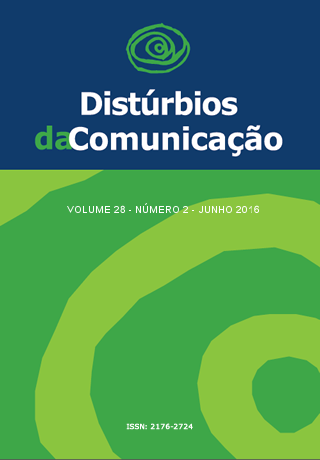Knowledge of voice training and self-care among politicians in Sergipe, Brazil
Keywords:
Politics, Speech-Language Pathology, Voice, Communication, Self-CareAbstract
Introduction: politicians use professional vocals, particularly during the electoral campaigns. Objective: to indentify if there is or there is not a perception among members of the state assembly, of their vocal care during the electoral campaigns. Method: exploratory design, cross, qualitative with content analysis, in a convenience sample design. Within the 24 state deputies, 10 voluntarily agreed to participate, answering a self-applied questionnaire, elaborated for the study. The questions were presented in sections personal profile (age, gender, prior profession before entering politics and time as state deputy; knowledge of use of the vocals and if have had support from speech-language pathologist; perception of vocal behavior changes, prior, during and after electoral campaign; complains of any vocal issues during the collection of data. Results: out of the 10 interviewed, 9 were of the masculine gender, the average age was 45 (38-53) years; the average time of political activity was 15 (11-22) years and they had parallel professions were they utilized professional voice. Two state deputies had received basic vocal education in radio courses. Only 4 take some care of their voice. We identified four categories that we named stereotypes: the “non-caring”; the “without knowledge but caring”; the “supposing correct”; the “theoretically informed but negligent”. Final considerations: only four respondents worried, even if in a rudimental form, with the use of adequate voice. It was observed that there is a lack of knowledge of the contribution of speech-language pathology to the vocal education.
Downloads
Metrics
Downloads
Published
Issue
Section
License
Copyright (c) 2016 Neuza Josina Sales, Déborah Pimentel, Íkaro Daniel de Carvalho Barreto, Maria Jesia Vieira

This work is licensed under a Creative Commons Attribution 4.0 International License.









